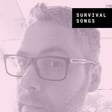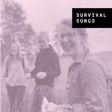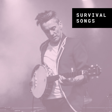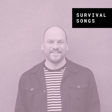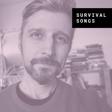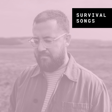
Robbie Austin: 'Overkill' by Men At Work
‘I would’ve been twelve. And I was holding on to the ladder, there was this little radio with the antennae up, tin foil on it…’ Grab a cuppa and let Robbie tell you a story. This is a great conversation about a song that’s endured with a fella who notices the details. We hope you love it as much as we do.
Robbie Austin is an artist, a teacher, a father, and a husband – though that order fluctuates regularly. He lives in a 112-year-old house, in the town he was born in Louisiana, half a mile from his former high school where he has taught for the last 18 years.
Robbie has exhibited from Los Angeles to New York, Houston to Frankfurt, and several places in between. Robbie’s artistic voice finds the positive and possibilities in all things. He draws from, on, and in collaboration with timeworn materials: maps, postcards, diaries, tablecloths - anything with an inherent story. “Whether labeling my voice and method naïve, hopeful, elating, or suspicious,” explains Robbie, “all harmonies are essential and lead the charge both in weighing choices and encouraging chances.”
Show notes:
Robbie’s website: robbieaustin.com
Instagram: @robbieaustinstudio
Help us a grow a community of survival song listeners by joining us on over on Substack:
https://survivalsongs.substack.com/
'Overkill' by Men At Work can be found on our community playlist on Spotify along with our listener’s Survival Songs. Check it out and add your own!
This episode contains small portions of ’'Overkill' by Men At Work. Survival Songs claims no copyright of this work. This is included as a form of music review and criticism and as a way to celebrate, promote and encourage the listener to seek out the artists work.
Find out more about Men At Work here:
https://open.spotify.com/artist/0f3EsoviYnRKTkmayI3cux?si=VbE82oYvRSK4Ss9jEmh4Ow


